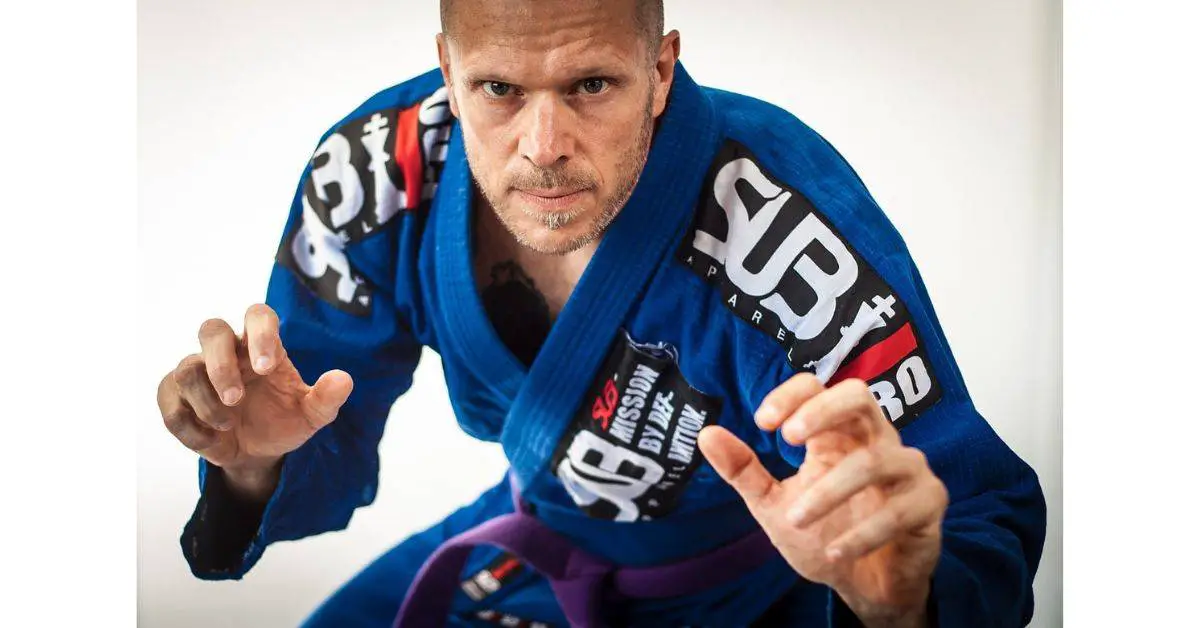BJJ, or Brazilian Jiu-Jitsu—is one of the most trained martial arts globally. Many of its trainees report feeling countless physical and mental benefits, such as increased confidence and self-esteem. But, until one can say he’s decent in it, one needs to get through long and hard training.
On average, it takes anywhere from 6-12 months to learn and get decent in BJJ. However, the number may range depending on numerous factors, such as how many times you’re training per week and how dedicated to training you are. If you completely dedicate yourself to BJJ, you can expect to get decent in six months.
BJJ, or the art of ground grappling, is one of the most effective fighting styles you can learn. If you already began your training, you know how suitable it may be for those wanting to learn how to fight. Additionally, it’s suitable for those wanting to improve themselves.
Nonetheless, learning it takes time and effort. You can’t expect to become good at the art of ground grappling without depositing a sweat or two. In fact, if your mindset is to learn as little as possible, you won’t progress.
Instead, it’ll help if you have a growth mindset. That growth mindset is what separates the trainees who dedicate themselves than those who do not. If you want to be one of the few that learns how to fight fiercely with BJJ, you can; all it takes is belief.
This article will discuss the average expected timeline that you need to invest to get decent at BJJ. If you want to improve yourself and learn how to fight, I have no doubt you should start training as soon as possible, regardless of your current position in life.
Before diving in, I recommend following the link to read about the best grappling dummies for your money. Such a purchase is fantastic if you want to progress outside your BJJ gym.
How long does it take to get decent at BJJ?
To progress in Brazilian Jiu-Jitsu, all you need to do is invest time and effort into the training itself. Many folks think they can become the Ultimate Fighting Champions by enrolling into a single fighting class. Here’s how long it really takes to get decent at BJJ:
As a general rule, it takes six months of dedicated BJJ training to get decent at it. However, the number may range anywhere from 30 days to two years. The amount of time it takes depends on a few factors, primarily how dedicated and consistent you are with training.
If, for example, you decide to snooze the alarm clock to sleep more and end up missing training, you’re not as consistent and dedicated. Nonetheless, the trainees with the growth mindset are also the ones who wake up despite they rather sleep more.
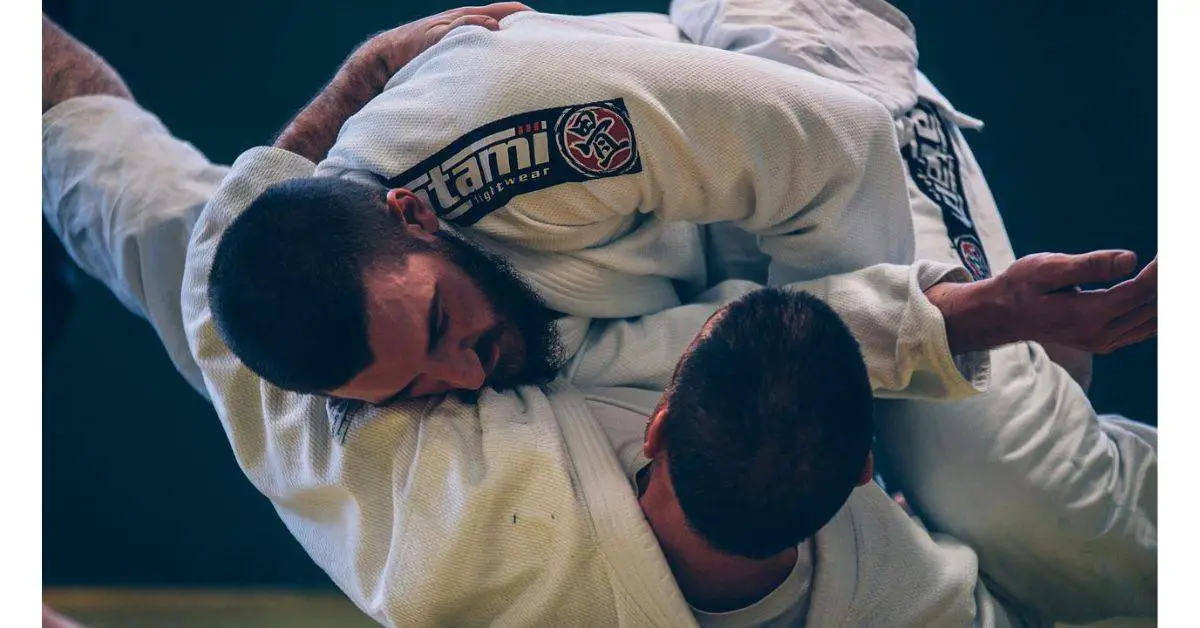
They decide to enroll into training regardless of whether they want to at the moment. Therefore, if you want to learn BJJ and get decent at it quickly, it’ll be best not to think about the progress as your goal.
Instead, look at it as a journey. You want to enroll into classes to better yourself, not to procrastinate. Eventually, it’ll be better if you adopt a mindset that ensures you believe in yourself and in the fact that you’ll progress.
If you don’t believe in yourself, why should anyone or the world believe in you?
How long does it take to learn the basics of BJJ?
Learning the basics of anything takes time. When you first start doing anything worthwhile, you’ll notice how good you feel once you’re over that phase. However, going through learning the basics—requires you to have a reason for what you want to achieve.
On average, it takes 2-4 months to learn the basics of BJJ. However, the number grows for those will less previous fighting experience or with less time to invest to training. Nonetheless, learning the basics of the art of grappling in less than 100 days—is entirely possible.
Many of my friends and I have gone through a 14 months martial arts course. In that time frame, I learned the basics of self-defense and how to fight properly. Of course, 14 months is plenty of time, and thus, you don’t have to invest that long just to learn the basics.
Again, going through the starter’s phase—is the most difficult obstacle you’ll face. You’ll be investing plenty of effort, time, and money and won’t see any concrete results.
Of course, that’s natural. Results will naturally flow into your life, and you won’t even feel it.
The number of benefits BJJ can provide to your life—is endless. These benefits range from being physical and some will be more mental. Like a spectrum, each result sits somewhere between the mental and physical edges.
Let me give you an example: if you train BJJ long enough, your confidence will improve. While we can say that’s a mental benefit, it’s also physical. That’s because the more confident you are, the more you’ll believe in yourself. As such, you’ll train harder and improve your physical shape.
To finish this section, it’s entirely possible to learn BJJ’s basics in under 120 days.
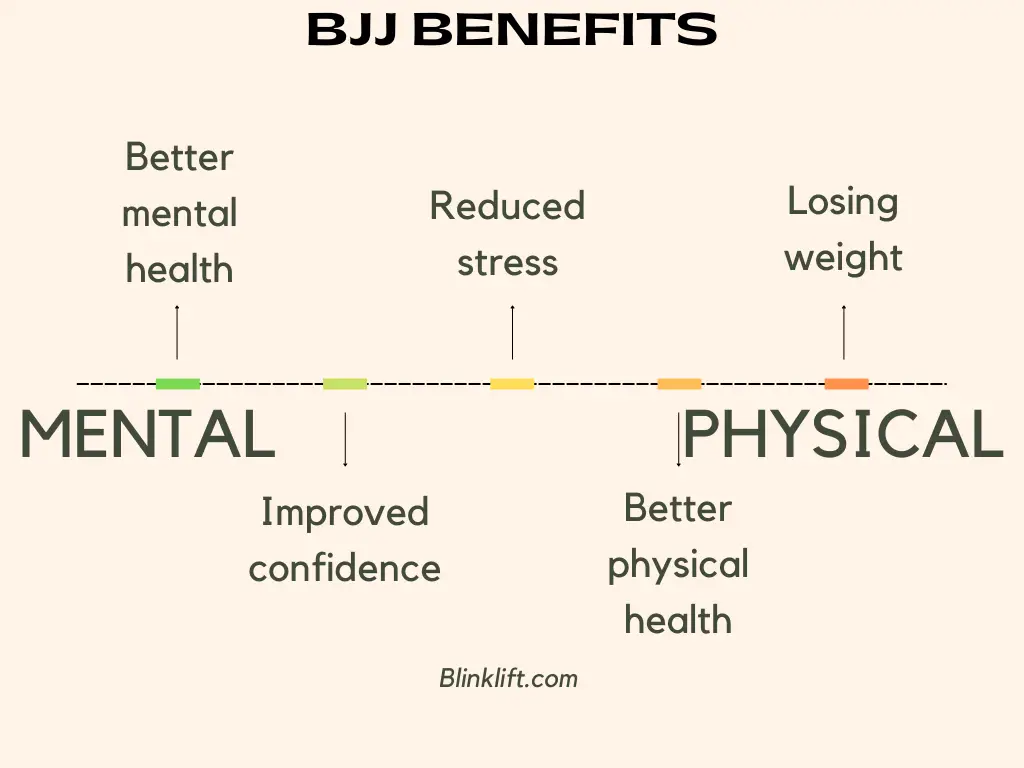
Is training BJJ 3 times a week enough?
When you do any type of physical training, you want to ensure proper amount of recovery. If you don’t allow your body and muscles to rest for long enough, you’ll cause harmful symptoms from overtraining. So, is training BJJ 3 times a week enough to see progression?
Training BJJ 3 times a week is enough because you’ll allow your body enough time to rest and recover while maximizing your progression and growth. The days you train in should not be consecutive, hence Sunday and Monday. Instead, you should take a day off between workouts to ensure recovery.
Training 3 times a week is definitely the limit. Sometimes, you can get away with 4 times a week. However, if you train 4 times a week every time, you’ll inevitably train on consecutive days. This will, of course, cause overtraining.
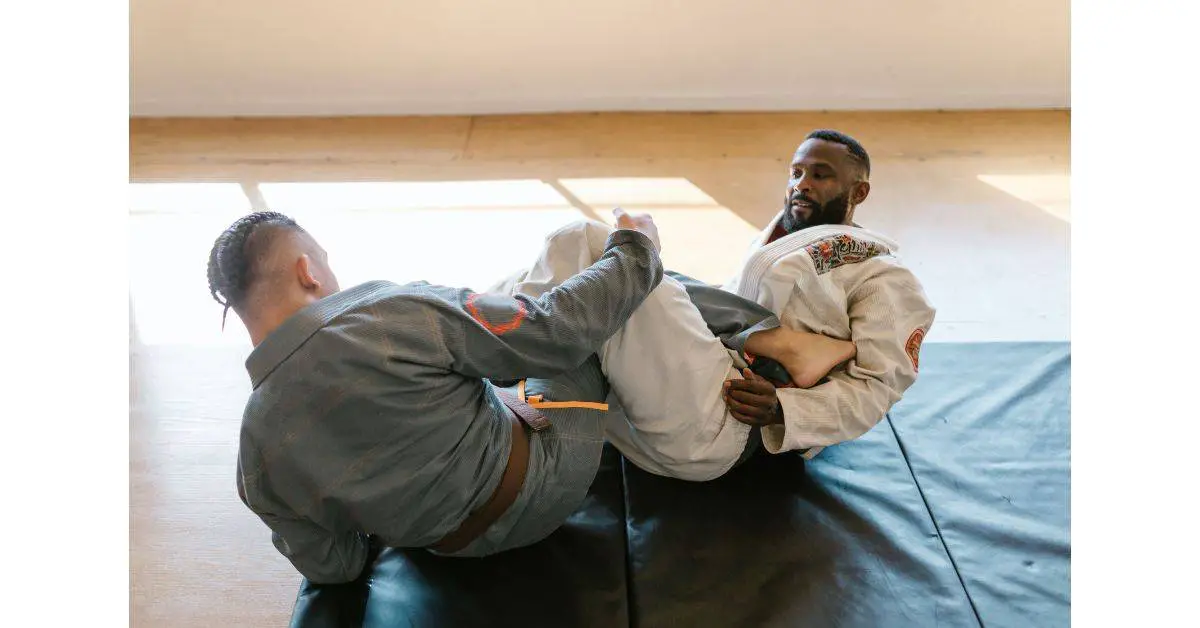
I’ll even go as far as saying that a single weekly session is better than overtraining. If you experience the symptoms of overtraining, you’ll inevitably be out of the mat for sometimes months.
As a result, it’ll be best if you keep yourself out of trouble and limit yourself to 3 times per week. Many medical publications have proved this fact time and time again. Training the same muscle groups on consecutive days will lead to trouble.
Here are some of the symptoms, according to ACSM’s Health & Fitness Journal:
- Persistent heavy, stiff, and sore muscles
- Persistent fatigue, washed-out feeling
- Decreased performance and ability to maintain the training regimen
- Increased susceptibility to infections, colds, headaches
- Nagging and somewhat chronic injuries
- Sleep disturbances
- Decreased mental concentration and restlessness
- Increased irritability
- Depression
- Tachycardia and, in some cases, bradycardia
- Loss of appetite and weight loss
- Bowel movement changes
- Absence of menstruation
As you can see, the list is long and goes even further. Don’t allow yourself to experience them by training too often.
Before moving on, if you want to learn more about the history of the art of ground grappling, hence BJJ, follow the link to an article of mine.
How many hours a week should I train BJJ?
Different BJJ gyms advocate different training hours. Nonetheless, there’s a specific number that always comes up when discussing the optimized number of hours you should train per week. In fact, it’s the same number in many sports and martial arts.
Assuming every BJJ session is 1.5 hours long, the optimized number of hours you should train is 5 hours a week. As we previously have seen, training for more than 3 times a week—may cause overtraining. As such, if we multiply 1.5 by 3 and add some extra training time, we get 5 hours per week.
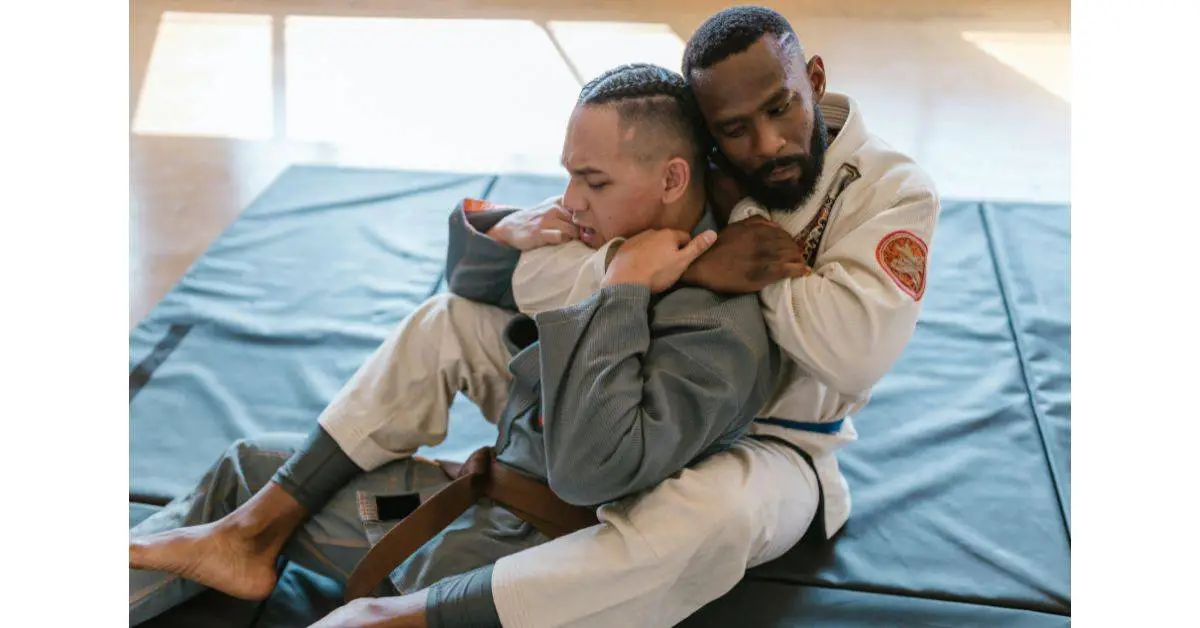
Of course, this number will range for many people. Some trainees feel comfortable training daily, and that’s fine as long as they listen to their bodies. Usually, those who train every day can’t allow themselves to go all out every day.
Nonetheless, if you allow your body to rest and recover well, you’ll be able to maximize your growth from every training session. Going all out isn’t only effective for growth, but it’s also more enjoyable.
If you currently train up to 3-4 times a week, you won’t need to worry about overtraining. However, those who do BJJ every day must pay attention to their bodies. Every small symptom may indicate signs of overtraining.
Lastly, I want to give another example from my life. I love bouldering. However, I also enjoy lifting weights. Whenever I train my back and biceps in my gym and do bouldering the day after, I always feel my biceps and back being stiffer. Sometimes, they even begin to hurt.
That’s how I know I overtrained, since both my back and biceps work both in lifting weights and while bouldering.
Final words
To end this article, I want to emphasize my appreciation for Brazilian Jiu-Jitsu. The amount of positive impact it had on its trainees—is astounding. If you want to join the group of people who seek to better themselves in many ways, sign up for Jiu-Jitsu classes as soon as possible.
I always recommend joining a qualified gym and following their training program. Most martial arts gym won’t allow you to overtrain, as they know how harmful it can get. Of course, you need to listen to your body as well.
If you want to progress and learn the basics quickly, ensure you optimize the number of hours you train per week. It’ll help you in having a steady yet explosive learning progression graph.
If you enjoyed reading this article, I encourage you to follow the link to learn more about the 9 mental benefits of BJJ.

